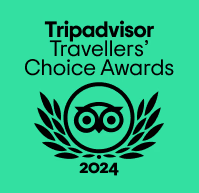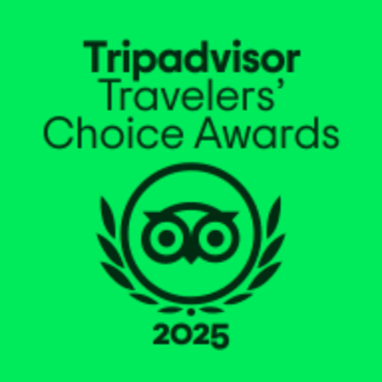BHUTAN
Travelog
Do People in Bhutan Speak English? A Tourist’s Guide to Language in Bhutan

Planning a trip to Bhutan and wondering how you'll get by with the language? Don't worry—Bhutan might be a kingdom steeped in ancient tradition, but when it comes to communication, you'll find it surprisingly accessible, especially for visitors. This guide breaks down everything you need to know about language in Bhutan, from the official tongue to handy local phrases and what to expect when interacting with locals.
What is the Official Language of Bhutan?
The national language of Bhutan is Dzongkha, which literally means “language of the fortress”. It’s a Sino-Tibetan language that uses the Tibetan script and is spoken widely across western Bhutan. Dzongkha is taught in schools and used in government, media, and official documents. Road signs, public notices, and television broadcasts are often in Dzongkha, though you'll frequently see English translations alongside.
For tourists, Dzongkha might sound quite unfamiliar. It has tones, like Mandarin, and a script that can be quite difficult to decipher unless you’ve studied it. That said, don't be intimidated—you're not expected to speak it.
Is English Spoken in Bhutan?
Yes, English is widely spoken in Bhutan, especially among younger Bhutanese, tour guides, hotel staff, and anyone working in the tourism industry. English is the medium of instruction in schools, so most people educated in Bhutan are fluent. You’ll find that signs in hotels, airports, restaurants, and even remote guesthouses often include English.
This means you'll have no trouble getting around, asking for directions, or understanding your guide. In fact, all government-certified tour guides are required to speak English fluently.
If you’re travelling from India, you’ll also be pleased to know that Hindi is commonly understood, thanks to Bollywood films and cultural exchange.

Other Languages Spoken in Bhutan
Despite being a small country, Bhutan is home to an impressive linguistic diversity, with over 19 regional languages and dialects spoken across the kingdom. These languages reflect the varied ethnic groups and geographical landscapes of Bhutan. Some of the most notable include:
-
Sharchhopkha (Eastern Bhutan): Spoken mainly in the eastern parts of Bhutan, this is the mother tongue of the Sharchop people.
-
Lhotshampa dialects (Southern Bhutan): Including Nepali, which is commonly spoken among the Lhotshampa community living in the south.
-
Bumthangkha (Central Bhutan): Found in the Bumthang region, this language has its own dialectal variations.
-
Khengkha (South-Central Bhutan): Spoken in the Zhemgang area.
-
Chocangacakha, Brokpa, and Lakha: These are minority languages spoken in isolated highland villages by semi-nomadic communities.
For tourists, this rich tapestry of languages may not be obvious unless you venture off the beaten path or engage deeply with local communities. But it’s a wonderful glimpse into the hidden layers of Bhutanese culture.
Useful Dzongkha Phrases for Tourists
Even though English will get you far, learning a few Dzongkha phrases can go a long way in showing respect and building connection. Here are a few to get you started:
-
Kuzu zangpo la (koo-zoo zang-po la) – Hello
-
Tashi delek (ta-shee de-lek) – Good luck / Blessings / Well wishes
-
Nga gi ming _____ inn la – My name is ________
-
Kadrinche la (ka-drin-che la) – Thank you
-
Meshu – No / It’s okay
-
Zhey go – Please eat
-
Lekso – Okay / Alright
These phrases are often accompanied by a gentle smile and a small bow with clasped hands, especially in formal or spiritual settings.
Tips for Communicating with Locals
-
Be respectful and patient – Bhutanese people are generally shy but very warm. A soft tone and friendly body language go a long way.
-
Avoid slang or jokes that may not translate well – Bhutanese society is quite conservative, so keep communication polite and simple.
-
Use your guide as a cultural bridge – Your guide is not just there to explain places but also to help you connect with locals and understand customs.
-
Don’t assume everyone speaks English in rural areas – In more remote villages, some older locals may not be fluent, but they’ll always try to help you.

Language and Bhutanese Culture
Language in Bhutan is more than just a means of communication—it’s a deeply intertwined part of national identity and spiritual life. Many sacred texts are written in Classical Tibetan, which is used in monastic settings. When you visit dzongs (fortresses), monasteries, or attend a tshechu (religious festival), you may hear chants in this ancient liturgical language, adding a layer of mysticism to your experience.
Recommended Tours to Bhutan
As a tourist in Bhutan, you’ll find the country incredibly welcoming and easy to navigate, even if you don’t speak Dzongkha. With English as the bridge language and locals eager to share their stories, you’re in for an enriching cultural journey. That said, learning a few Dzongkha phrases will always be appreciated and could open up even more meaningful encounters along the way.
Follow Druk Asia on social media for inspiring travel stories, breathtaking photos, and the latest updates from Bhutan.
Ready to Experience the Magic of Bhutan?
Fill in the form below and the friendly Bhutan Travel Specialist team will get back to you with expert advice, itinerary ideas, and everything you need to know. No obligations, just warm guidance from those who know Bhutan best.
Thank you for your message!
Hang tight—one of our friendly Bhutan Travel Specialists from Druk Asia will be reaching out soon with expert tips, insider advice, and exciting itinerary ideas to help you plan the adventure of a lifetime!
Discover
Breathtaking
Bhutan.
Thank you for subscribing!
You have successfully subscribed to our newsletter.




